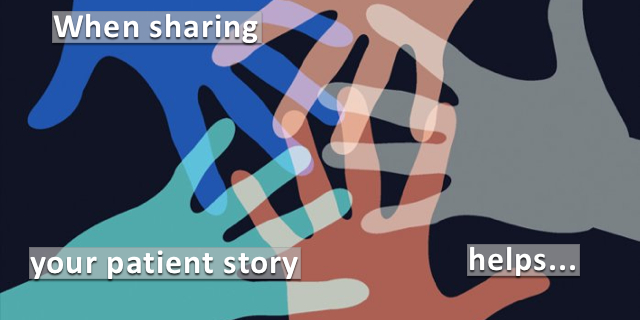In April, the American Association for Cancer Research (AACR) held a free education event on cancer called Progress and Promise Against Cancer in Washington, D.C. Surrounded by experts in cancer research, Kim Hall Jackson shared her patient story.
One evening in 2008, Jackson, an event planner, was running the mayor’s inaugural event in Philadelphia. She had a bleeding episode in the bathroom. The next day she was in touch with her primary care physician. After ruling out certain common causes of bleeding, they scheduled a colonoscopy.
Jackson was diagnosed with colon cancer at age 45.
In a follow-up discussion after her diagnosis, her surgeon kept mentioning a “bag.” “No matching shoes, just the bag,” she quips in her presentation. Importantly, Jackson was able to stop the surgeon long enough to find out that he was referring to an ostomy bag. Part of her treatment involved a temporary ileostomy.
Along with successful surgery, Jackson received chemotherapy and radiation treatment. During her patient journey, Jackson used several key advocacy strategies to get the best care possible.
First, she asked her physicians to clarify and explain.(Check out 6 Tips to Get the Most Out of Your Doctor’s Appointment)
Second, she conducted her own research to be sure she understood everything that was to happen. (Check out 16 Insights from World Wide Chat on Health Information Seeking
Third, she went for second and third opinions. (Read Eliminate Your Doubts About Getting A Second Opinion)
Finally, she created a team of professionals that she felt she could trust (See Guest Post: Creating a Multidisciplinary Healthcare Dream Team).
Today she uses her skills in event planning to educate others, especially African Americans, about screening for colon cancer. Watch her presentation below. After telling her patient story, she explains how she shares her story and makes a difference debunking myths which keep people from getting colonoscopies.
Here is a link to the full video if you would like to watch the entire panel of presenters.
To see other presentations held at this event, please go to https://www.aacrfoundation.org/community-ed/Pages/progress-and-promise-against-cancer-washington-dc.aspx






Adequate sharing about colon cancer and after completing this post one can be able to learn about many symptoms of colon cancer. Very informative post.
We all need to be more aware of the importance of regular doctor visits and tests. Early detection is the key to fighting cancer. Thanks for sharing.
Thank you for sharing your personal story and insights. Colon cancer awareness and screening is so important. You will make a difference in many people’s lives.